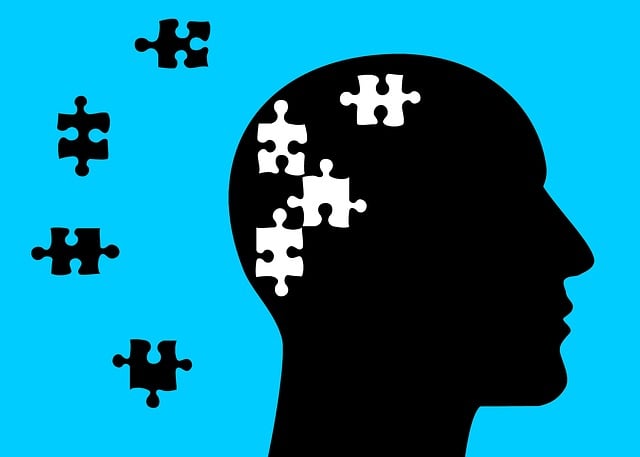Longmont Hebrew Speaking Therapy offers a comprehensive, culturally sensitive approach to demystifying mental health diagnoses and empowering individuals towards recovery. Their specialized services integrate evidence-based techniques like CBT and IPT with tailored self-care practices, medication management, and strong support systems, ensuring personalized care for each unique journey. Through safe spaces for open discussions, shared experiences, and professional guidance, they foster resilience, self-awareness, and a sense of belonging, enabling individuals to take control of their mental well-being holistically.
Navigating mental illness can be overwhelming, but understanding diagnoses and treatment options is empowering. This comprehensive guide aims to demystify mental health journeys, offering insights into various aspects of care. We explore essential topics such as diagnosis, therapy types, medication management, and building supportive networks.
Longmont Hebrew Speaking Therapy stands out as a valuable resource, providing culturally sensitive care and guidance in diagnosis and treatment planning. This article equips individuals and families with knowledge to make informed decisions, emphasizing the importance of self-care throughout the process.
- Understanding Mental Health Diagnoses: A Comprehensive Guide for Individuals and Families
- The Role of Longmont Hebrew Speaking Therapy in Diagnosis and Treatment Planning
- Navigating Treatment Options: Therapies, Medications, and Support Systems
- Building a Supportive Network: Connecting with Like-Minded Communities and Professionals
- Self-Care Strategies for Mental Wellbeing During and After Treatment
Understanding Mental Health Diagnoses: A Comprehensive Guide for Individuals and Families

Navigating mental health diagnoses can be a complex and often daunting task for individuals and their families. Understanding the various conditions, their symptoms, and available treatment options is essential to finding the right support. This comprehensive guide aims to demystify the process, offering clarity in what can sometimes feel like a confusing and overwhelming journey.
At Longmont Hebrew Speaking Therapy, we recognize that seeking help for mental health issues is a significant step towards healing. Our experts provide a safe space for individuals and families to explore and understand diagnoses, fostering positive thinking and compassion cultivation practices. By integrating self-care practices tailored to individual needs, we empower clients to take control of their mental well-being and embark on a path toward sustainable recovery.
The Role of Longmont Hebrew Speaking Therapy in Diagnosis and Treatment Planning

Longmont Hebrew Speaking Therapy offers a unique and invaluable service for individuals navigating mental health challenges within the Jewish community. This specialized therapy provides a safe space where clients can openly discuss their experiences while receiving culturally sensitive support. The therapists at Longmont are not only fluent in Hebrew but also trained in understanding the specific psychological and cultural nuances of Jewish individuals, ensuring effective diagnosis and treatment planning.
Through its comprehensive approach, Longmont Hebrew Speaking Therapy assists clients in developing self-awareness exercises tailored to their cultural backgrounds, promoting personal growth and resilience. Moreover, the therapy focuses on building confidence and empowering individuals to manage their mental health effectively. By incorporating strategies for burnout prevention, this support system helps those facing mental illness thrive while preserving their cultural identity.
Navigating Treatment Options: Therapies, Medications, and Support Systems

Navigating treatment options for mental health is a crucial step in one’s journey to recovery. This process involves exploring various therapeutic approaches and finding personalized solutions. Longmont Hebrew Speaking Therapy offers a unique perspective, providing support tailored to individuals’ cultural backgrounds, ensuring an inclusive healing environment. Therapies such as cognitive-behavioral therapy (CBT) and interpersonal psychotherapy (IPT) are evidence-based methods that help individuals identify and change negative thought patterns and improve relationships.
Along with therapy, medication management plays a significant role in treating mental health conditions. Psychiatrists may prescribe anti-depressants, mood stabilizers, or antipsychotics to regulate symptoms. Building a strong support system is equally vital; family, friends, and support groups can provide empathy and understanding, fostering an environment conducive to healing. Additionally, mental illness stigma reduction efforts and effective communication strategies among healthcare providers, patients, and families are essential components of navigating this complex landscape.
Building a Supportive Network: Connecting with Like-Minded Communities and Professionals

Building a supportive network is an integral part of navigating mental illness. Connecting with like-minded communities offers a sense of belonging and understanding, providing individuals with a safe space to share experiences and gain insights from others facing similar challenges. Longmont Hebrew Speaking Therapy understands the power of community support, facilitating connections within diverse groups where individuals can find validation and encouragement.
Professionals play a crucial role in this network. Therapists, counselors, and psychiatrists offer specialized knowledge and skills to aid in treatment. They provide guidance tailored to individual needs, focusing on strategies for anxiety relief, inner strength development, and social skills training. By weaving together these connections—communities and professionals—a robust support system emerges, empowering individuals to actively participate in their healing journey.
Self-Care Strategies for Mental Wellbeing During and After Treatment

Maintaining mental wellbeing during and after treatment is a crucial aspect of recovery. Individuals undergoing therapy, whether through Longmont Hebrew Speaking Therapy or other means, should incorporate self-care strategies into their daily routines. Simple yet effective practices such as regular exercise, mindfulness meditation, and keeping a journal can significantly enhance one’s ability to manage stress and emotional challenges. These activities foster self-awareness exercises, enabling individuals to better understand and navigate their mental health journeys.
Additionally, prioritizing quality sleep, maintaining a balanced diet, and engaging in hobbies that bring joy are essential components of holistic care. By adopting these strategies, individuals not only support their immediate mental wellbeing but also build resilience for the long term. Public awareness campaigns development around self-care practices can further empower folks to take charge of their mental health, ensuring they have the tools and resources needed to thrive both during and after formal treatment.
Navigating mental illness is a complex journey, but armed with knowledge and support, individuals can achieve significant improvements. This article has provided a comprehensive guide through various aspects of managing mental health, from understanding diagnoses to self-care strategies. Notably, the role of specialized services like Longmont Hebrew Speaking Therapy in diagnosis and treatment planning has been highlighted, emphasizing the importance of tailored care. By connecting with supportive communities, engaging in effective therapies, and prioritizing self-care, those facing mental health challenges can enhance their wellbeing and lead fulfilling lives.














